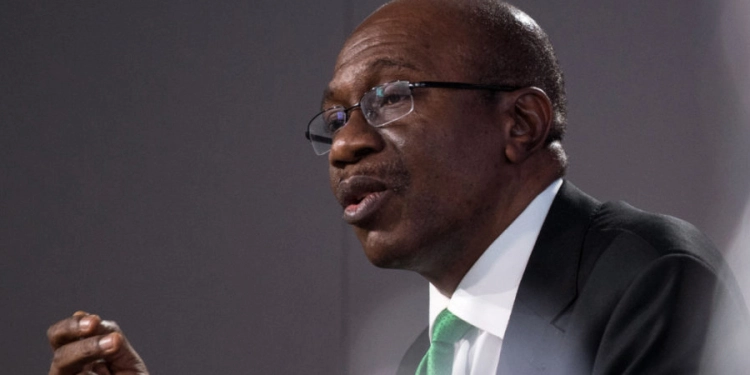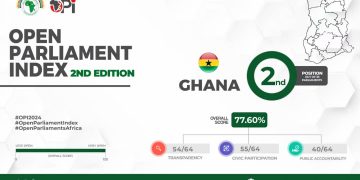CBN policies push bank loans to private sector to highest in Nigeria’s history
Private sector credit in Nigeria has hit unprecedented levels, standing at N24.45 trillion as of the end of January 2022, which represents a whopping N4.19 trillion year-on-year increase.
This is according to data obtained by Nairametrics Research from the Central Bank of Nigeria (CBN).
Nigeria’s private sector credit has been on a consistent rise since June 2021, the latest being a N68 billion increase from N24.38 trillion recorded as of December 2021 to N24.45 trillion as of the end of January 2022.
Similarly, bank credit to the private sector had increased by N366.14 billion in December 2021 and N687.95 billion in the previous month.
On the other hand, banks reduced their credit risk exposure to the oil and gas industry, dropping to 17.3% as of January 2022 from 19.35% recorded as of the corresponding period of 2021.
Why the surge in bank loans
The significant increase in private sector credit can be attributed to the dovish monetary policy of the Central Bank of Nigeria, keeping the benchmark interest rate at 11.5% since October 2020, in a bid to spur growth in economic activities which had been marred by the covid-19 pandemic and resulted in two consecutive quarters of GDP contractions.
It is worth noting that the monetary policy committee’s approach to keeping the interest rates low has paid off, as the economy recorded significant growth in 2021. Nigeria’s real GDP grew by 5.01%, 4.03%, and 3.98% in Q2, Q3, and Q4 2021 respectively.
However, the increased activities and improved currency in circulation, exacerbated by other social and infrastructural issues have flared inflationary pressure in the country, with food inflation currently standing at 17.11% and headline inflation at 15.7%.
Meanwhile, the MPC voted to maintain the precautionary policy stance in keeping the interest rates low for the 10th consecutive meeting, although this time four members of the committee voted to raise the MPR as against six members in favour of a hold stand.
Read: E-Levy: “I am taxing an industry not the poor” – Prez Akufo-Addo tells BBC

Sectors with the highest bank credit
- A further look at the data from the CBN revealed that the downstream oil and gas sector is the highest receiver of bank credit with N4.23 trillion as of January 2022, which accounts for 17.3% of the total private sector credit.
- Notably, the sector includes natural gas and crude oil refining. In economic terms, the oil sector has been one of the underperforming sectors of the Nigerian economy, printing recurrent contractions in real GDP in the past seven quarters and an 8.3% year-on-year decline in 2021.
- Little wonder why banks are trying to reduce their loan exposure in the oil and gas industry both in Nigeria and in the global economy. This is as a result of the volatility associated with the crude oil market and decline in the industry activities. It is worth noting that the oil market has been on a bullish run since 2021, following the OPEC+ strategy to reduce supply and the ongoing Russia-Ukraine faceoff.
- The manufacturing sector followed closely with a total credit of N4.19 trillion as of the review period, which accounted for 17.1% of the total private sector credit. The services sector with a total credit of N2.38 trillion stands third on the list.
- Others include government (N2.34 trillion), finance (N1.73 trillion), trade (N1.69 trillion), agriculture (N1.46 trillion), upstream oil and gas (N1.46 trillion), construction (N1.03 trillion), and ICT with a total bank credit of N952.1 billion.

Manufacturing sector receives more bank credit
The banking sector is beginning to increase its exposure to the manufacturing industry, increasing its credit to the industry by N1.03 trillion in the one-year period under consideration. Specifically, credit to the manufacturing sector increased from N3.16 trillion recorded as of January 2021 to N4.18 trillion as of January 2022.
Credit exposure to the manufacturing sector increased to 17.1% in January 2022 compared to 15.6% as of January 2021 and 15.74% as of the same period in 2020.
The increased credit allocation to the manufacturing sector follows improved activities recorded in the industry in recent times. The manufacturing sector expanded by 3.35% year-on-year in real terms in 2021. The sector has been on a positive trajectory since 2017, with the exception of the covid-19 disrupted 2020.
Gowing activities in the cement, vehicle assembly, and food production industry of the economy are some of the factors driving improvement in the Nigerian manufacturing sector and by extension an incentive for commercial banks’ willingness to allocate loans to the sector.








